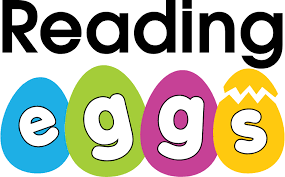Find your next learning adventure












Fill out the filter below:
ALEKS Adventure invites elementary students to learn and master math concepts while discovering new worlds and meeting new friends. Personalized, playful, and age-appropriate, ALEKS Adventure makes learning math fun! It helps students learn at their own pace and keeps them engaged with practice that builds confidence and long-term understanding. Each topic is designed using proven methods that support how young children learn best.
ALEKS Adventure invites elementary students to learn and master math concepts while discovering new worlds and meeting new friends. Personalized, playful, and age-appropriate, ALEKS Adventure makes learning math fun! It helps students learn at their own pace and keeps them engaged with practice that builds confidence and long-term understanding. Each topic is designed using proven methods that support how young children learn best.
ALEKS Adventure invites elementary students to learn and master math concepts while discovering new worlds and meeting new friends. Personalized, playful, and age-appropriate, ALEKS Adventure makes learning math fun! It helps students learn at their own pace and keeps them engaged with practice that builds confidence and long-term understanding. Each topic is designed using proven methods that support how young children learn best.
In this introductory course, students learn the basics of HTML and CSS to build and style simple web pages. This course lays the foundation for future web development by building both technical skills and digital awareness.
Skill Struck’s Web Development Track introduces the basics of building websites using HTML and CSS. Through fun, age-appropriate lessons, students learn how to structure web pages, add content and images, and style their sites with colors, fonts, and layouts. This track encourages creativity and digital expression while laying the foundation for more advanced web development skills in the future.
Skill Struck’s Robotics Track introduces students to the exciting world of robotics through interactive coding activities. Using block-based and text-based programming, students learn to control virtual and physical robots while exploring key concepts like sensors, movement, loops, and conditionals. This track builds computational thinking and problem-solving skills, empowering students to design, test, and refine robotic solutions in engaging, real-world scenarios.
Skill Struck’s Puzzles Track for upper elementary students introduces core coding concepts through fun, interactive challenges. Using block-based and introductory text-based programming, students develop problem-solving and computational thinking skills as they complete progressively complex puzzles. This track fosters creativity, resilience, and a strong foundation in computer science, preparing students for more advanced coding in later grades.
Skill Struck’s Blocks Pro Track is designed for upper elementary and middle school students to deepen their understanding of computer science using block-based programming. Through engaging projects and challenges, students explore advanced coding concepts such as loops, conditionals, functions, and events while building real-world problem-solving skills. This track provides a strong foundation for transitioning to text-based programming and supports creativity, critical thinking, and logical reasoning.
Skill Struck’s 2nd Grade Computer Science course expands students' foundational understanding of technology through engaging lessons on hardware, software, internet safety, and digital citizenship. Students develop essential skills in troubleshooting, file organization, and block-based programming while exploring how technology impacts daily life. Aligned with CSTA standards, this course fosters responsible digital behavior and critical thinking, preparing young learners to navigate the digital world confidently.
Skill Struck’s Grade 1 Computer Science course builds upon foundational tech skills by introducing students to computer hardware, software, and troubleshooting. Through engaging lessons, students explore internet communication, pattern decoding, and block-based programming while developing digital citizenship skills like kindness, respect, and responsibility. Aligned with CSTA standards, this course empowers young learners to navigate technology confidently and thoughtfully.
Skill Struck’s Kindergarten Computer Science course introduces young learners to foundational technology concepts through interactive and age-appropriate lessons. Students explore topics such as identifying computers and their components, understanding hardware and software, navigating devices, decoding patterns, and learning about the internet and digital citizenship. Aligned with CSTA standards, the course fosters essential digital skills and encourages responsible technology use from an early age.(skillstruck.com)
MusiQuest Premium includes full access to the MusiQuest platform, including 35 lessons and over 1000 music activities like Glossary, Instrument Intros, Emoties, Famous Songs, Song Prompts, Grooves, Musical Recall, Musical Biographies, Musings, and Surveys.
Religions provides a sociological exploration of major global belief systems, examining their origins, rituals, and societal impact. This course delves into Christianity, Islam, Hinduism, Buddhism, Judaism, and Sikhism, analyzing how religious beliefs influence social structures, cultural practices, and individual behaviors. Students explore the dynamic relationship between religion and society, considering contemporary issues, global perspectives, and the challenges posed by religious pluralism. Through critical thinking exercises, comparative analysis, and cultural engagement, students gain insights into the complexities of religious diversity. This course equips students with valuable sociological perspectives to navigate the interplay of religions in shaping our interconnected world. Assessment methods include exams, research papers, group projects, and discussions, fostering a comprehensive understanding of the sociological dimensions of world religions.
Developmental Psychology explores human growth from infancy to adulthood, emphasizing biological, cognitive, and socioemotional influences. This course integrates major theories, empirical research, and real-world applications to examine key developmental milestones. Topics include prenatal development, childhood, adolescence, and adulthood transitions. Through exams, projects, and discussions, students apply psychological theories to practical scenarios. PSYC 2523 provides a comprehensive understanding of individual development, applicable across diverse fields such as education, counseling, and healthcare.
A general appreciation course designed to make music meaningful to the average listener. The relationship of rhythm, melody, harmony, and form will be demonstrated though selected recordings. The elements of music will be treated non-technically together with historical and biographical observations. Western art music will be discussed as well as music of other world cultures. Also, a general survey of folk and popular music will be provided.
Introduction to Statistics is a first-semester course on the nature of statistical reasoning. Topics to be covered include descriptive statistics, sampling and data collection, basic probability, sampling distributions, and statistical inference (including 1- and 2-sample confidence intervals and hypothesis testing).
College Algebra is designed to prepare students for trigonometry and calculus. In this course students will study several types of functions including polynomial, rational, exponential, and logarithmic functions. Additional topics may include graphing technology, sequences and series, conic sections, matrices, modeling, and the binomial theorem. (3 or 4 credits). Prerequisite Requirements: ACT Math Subject Score: 23 or higher OR ALEKS Placement Test Score: 46 or higher.
This course explores the history of the world from the earliest times into the 14th century. Emphasis is placed on the cultural and intellectual aspects of both Western and non-Western civilizations which established the foundations for their subsequent historical developments.
This course will introduce personal and consumer financial concepts and give students basic tools to make sound financial decisions in today’s society based on economic trends and research. This is a practical course in personal money management consisting of financial planning including career choices, budgeting, planning for retirement, financing a home and automobile, and understanding consumer credit, taxes, insurance, and investments. Students will use basic math skills as well as read, write, and think critically.
This course is an introduction to literary forms, to close reading of literature, and to the terminology of literature. The emphasis is on fiction, poetry, and drama. The course will emphasize diverse literary traditions, historical time periods, diverse authors, careful reading, literary analysis, and thoughtful interpretation.
This introductory course investigates principles of communication theories and how to use these theories in practical application. The course content encourages students to analyze, assess and evaluate communication principles. Students will develop skills and techniques essential to effective communication in settings that include; intrapersonal, interpersonal, small group and public speaking. Students will develop the ability to look at the big picture of human communicate and how it affects each individual’s perception, cultural traditions and human philosophy.
Students will build on the skills learned in ENGL 1010 in this intermediate writing course. ENGL 2010 is designed to improve students’ reading, writing, research, and critical thinking skills. The course will include expository, persuasive, and/or argumentative writing emphases. The course will require several research-oriented writing assignments.
This course emphasizes critical reading, writing, and thinking skills through writing-intensive workshops. It explores writing situations as a complex process focusing specifically on idea generation relative to audience and purpose, working through multiple drafts, peer collaboration, and revision, and it includes rhetorical analysis. Prerequisite Requirements: ACT/SAT/CLT English Subject Score: 19 or higher. If the above score is not met: You must pass both the Accuplacer Modular Test and the Written portion. Alternatively, you may take the ENGL 0120 Metacognitive Writing Strategies course. Upon successful completion of ENGL 0120, you will qualify to register for ENGL 1113.
This course provides a first experience with academic writing and/or a review of the basic components of writing, including grammar, usage, and punctuation. Students learn simple sentence construction and coordination leading to basic paragraph construction. Students learn to respond to written texts and prompts. The course prepares students to succeed in English 1010. Recommended for students scoring lower than 17 on the English section of the ACT.
The study of interpersonal communication is the study of interaction between people. It is not only the conversation, but the psychology of relationships, problems, and situations and how they can be dealt with in an effective manner. This course is designed to study interpersonal communication from a descriptive as well as analytical point of view. The topics of interpersonal relationships include; cognitive psychology, self-concept, perception, emotions, verbal and nonverbal language, listening, intimacy, climate, and conflict will be discussed. Possible methods of enhancing interpersonal communication situations will be practiced through discussion, role-play, writing, critical evaluation, feedback and observance.
This course introduces individuals to a variety of chemistry-related knowledge and experience and is designed to give non-majors a glimpse at chemistry and how it relates to the world around them. As a general education course, it relates chemistry to the real world experience and gives the student an opportunity to investigate chemical principles in their life. It gives the student a feeling for how scientists view problems and the systematic method by which they solve them. Discussion topics are chosen from physical, organic, and biological areas inside the chemistry field.
This course is designed to expose students from any area of study to the many functions of modern business. The course shows students how these functions exist in a changing society and the types of decisions which must be made within that environment. The importance of business in modern society is also emphasized throughout the course. In an introductory manner, the course covers topics such as entrepreneurship, economics, management, human resource management, marketing, and accounting.
This course introduces many major themes in biology, such as inheritance, diversity of life, growth and response of organisms, and flow of matter and energy through biological systems. Special emphasis is given on how this discipline influenced past, present, and future world issues. Students will learn to think critically, interpret data, evaluate information, communicate clearly, about life in the world around them.
Students will explore the making and meaning of images through hands-on camera work, lectures, and discussion. Emphasis is placed on the development of creative expression and photography as a fine art medium. Topics include camera operation, use of light, image editing, formal aesthetics, historical perspectives, conceptual approaches, exhibition presentation, and a final portfolio.
This course explores the diverse and dynamic field of visual culture, examining how visual media, including art, photography, film, advertising, and digital media, influence and reflect societal values, beliefs, and identities. The course encourages critical thinking about the role of visual representation in shaping cultural narratives and offers students the tools to analyze and interpret visual texts from various historical periods and global perspectives.
For the multi-course package, students may take up to 5 courses per semester. Students will work directly with OC Online to curate a custom early college education plan to reach their individual goals.
Lexia PowerUp Literacy is designed for older students who need additional support in reading and writing. It focuses on building skills in fluency, vocabulary, and comprehension through adaptive lessons, providing personalized support to help students improve their literacy and gain confidence.
Lexia PowerUp Literacy is designed for older students who need additional support in reading and writing. It focuses on building skills in fluency, vocabulary, and comprehension through adaptive lessons, providing personalized support to help students improve their literacy and gain confidence.
Lexia PowerUp Literacy is designed for older students who need additional support in reading and writing. It focuses on building skills in fluency, vocabulary, and comprehension through adaptive lessons, providing personalized support to help students improve their literacy and gain confidence.
Lexia PowerUp Literacy is designed for older students who need additional support in reading and writing. It focuses on building skills in fluency, vocabulary, and comprehension through adaptive lessons, providing personalized support to help students improve their literacy and gain confidence.
Lexia PowerUp Literacy is designed for older students who need additional support in reading and writing. It focuses on building skills in fluency, vocabulary, and comprehension through adaptive lessons, providing personalized support to help students improve their literacy and gain confidence.
Lexia PowerUp Literacy is designed for older students who need additional support in reading and writing. It focuses on building skills in fluency, vocabulary, and comprehension through adaptive lessons, providing personalized support to help students improve their literacy and gain confidence.
Lexia PowerUp Literacy is designed for older students who need additional support in reading and writing. It focuses on building skills in fluency, vocabulary, and comprehension through adaptive lessons, providing personalized support to help students improve their literacy and gain confidence.
Lexia Reading Core5 is a research-proven literacy program that helps students develop key reading skills like phonics, fluency, and comprehension. It uses adaptive technology to provide personalized learning paths and targeted practice to build strong foundational skills.
Lexia Reading Core5 is a research-proven literacy program that helps students develop key reading skills like phonics, fluency, and comprehension. It uses adaptive technology to provide personalized learning paths and targeted practice to build strong foundational skills.
Lexia Reading Core5 is a research-proven literacy program that helps students develop key reading skills like phonics, fluency, and comprehension. It uses adaptive technology to provide personalized learning paths and targeted practice to build strong foundational skills.
Lexia Reading Core5 is a research-proven literacy program that helps students develop key reading skills like phonics, fluency, and comprehension. It uses adaptive technology to provide personalized learning paths and targeted practice to build strong foundational skills.
Lexia Reading Core5 is a research-proven literacy program that helps students develop key reading skills like phonics, fluency, and comprehension. It uses adaptive technology to provide personalized learning paths and targeted practice to build strong foundational skills.
Lexia Reading Core5 is a research-proven literacy program that helps students develop key reading skills like phonics, fluency, and comprehension. It uses adaptive technology to provide personalized learning paths and targeted practice to build strong foundational skills.
Imagine Math pathways are series of lessons that are delivered to students. High School Math II pathways are the second of the integrated High School Math courses and provide a combination of number, algebra, geometry, probability, and statistics. Students' focus is centered upon quadratics, real and complex numbers, probability and data, and right triangle trigonometry.
Imagine Math pathways are series of lessons that are delivered to students. High School Math I pathways are the first of the integrated High School Math courses and include a composite of number, algebra, geometry, probability, and statistics. Students broaden their understanding of linear relationships while applying properties and theorems involving congruent figures.
Imagine Math pathways are series of lessons that are delivered to students. High School Geometry pathways are a traditional Geometry course. Students will explore more complex geometric situations while gaining an understanding of geometric relationships.
Imagine Math pathways are series of lessons that are delivered to students. Algebra Readiness pathways are specifically designed for a student's preparation for Algebra I or an integrated High School Math course. The pathway lessons include foundation concepts for High School courses and are identical to the Grade 8 pathway.
Imagine Math pathways are series of lessons that are delivered to students. Algebra I pathways are comparable to a traditional Algebra I course. Students will gain and broaden their understanding of linear and exponential relationships and engage in methods for analyzing, solving, and using quadratic functions.
In World History Survey, learners will study major historical events from early human societies through to the present day. Multimedia tools including custom videos as well as videos from the BBC, custom maps, and interactive timelines will help engage learners as they complete this year-long course. Topics of study include early civilizations, world religions, the Renaissance, the World Wars, and the globalized world of today.
In World History Survey, learners will study major historical events from early human societies through to the present day. Multimedia tools including custom videos as well as videos from the BBC, custom maps, and interactive timelines will help engage learners as they complete this year-long course. Topics of study include early civilizations, world religions, the Renaissance, the World Wars, and the globalized world of today.
In World History, students learn to see the world today as a product of a process that began thousands of years ago when humans became a speaking, travelling, and trading species. Through historical analysis grounded in primary sources, case studies, and research, students investigate the continuity and change of human culture, governments, economic systems, and social structures.

No courses match your filters

















